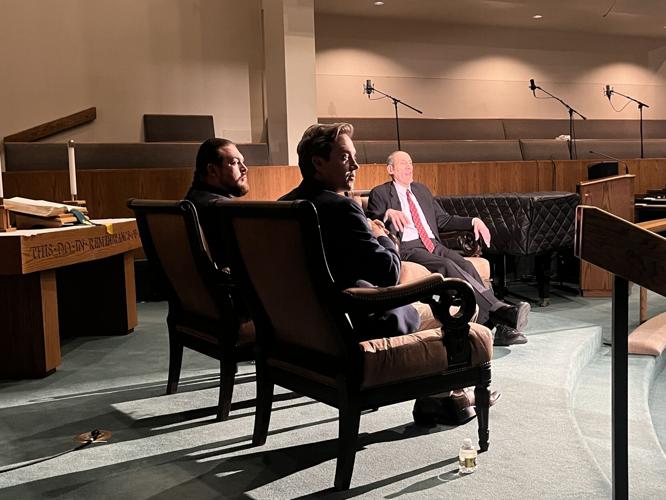Mayoral candidates Ean Tafoya and Mike Johnston threw a wrench in the typical debate format by agreeing on several issues during a forum at the Shorter Community African Methodist Episcopal Church Tuesday night.
Candidates discussed the recent influx of migrants in the city and also talked about how they would address sustainability. Well over 4,500 migrants came through Denver since Dec. 9, according to the city, with over a quarter of them remaining.
Johnston called for regional collaboration up and down the Front Range.
Poll: Strong response to Denver's crime would attract voters' support; voters oppose 'defund' police
"If you remember Hurricane Katrina, refugees from New Orleans came to places like Denver. New Orleans called in advance and said 'We've got 50,000 refugees, how many can you take in Denver?'" he said. "If you get an upfront idea, you can say, 'OK, what can we as a state or as a region absorb?'"
Tafoya called attention to the climate crisis, saying even more people will be considered refugees as they are displaced by climate change. Having solutions is critical, and money for those solutions is out there thanks to federal funding, he said.
Poll: 60% of voters undecided in Denver mayor's race; Brough leads field, Rougeot enjoys GOP support
"(There are) literally billions of dollars available. I had a chance to go to the White House several times to talk about how we're going to bring in those dollars," he said. "I want to install a cabinet that has a mindset of solving the climate crisis ... and how we're working to get our senators to bring this money back into our community."
Homelessness has been a hot topic for virtually every candidate.
Johnston pledged to end homelessness within his first term. He said there are three things the city has missed in its approach: housing people first, bringing wraparound services to those people and respecting the sense of community that exists in many camps.
"If you open a micro-community with 40 or 60 sites, you can come to a community of 20 or 30 or 40 people living in a couple of encampments and actually move the entire community to a new location," he said. "The problem with building a single family home is you build one unit."
Johnston supports tiny homes and tiny villages. They are a quick solution that can help shelter many people while the city builds more permanently affordable units, he said. Tafoya also likes this approach because of how modular and customizable the communities can be.
"That is incredibly important. You can customize it ... and that's really what equity is about," he said regarding the speed of construction. "Multifamily housing takes three to five years to build and if you build 100 units for those four years, 100 people aren't housed."






